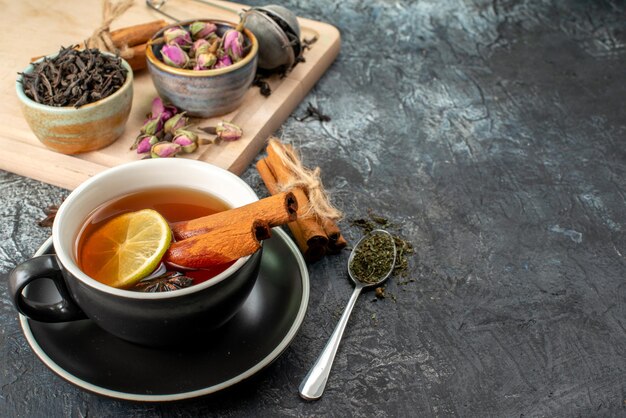Black tea, a popular drink for many, has a rich history and cultural significance. Known for its bold and robust flavor, it stands out among other teas like green, oolong, and white. This article delves into the details of black tea, covering its production, varieties, properties, and potential health benefits.
Black tea is made through a specific process that results in a dark-colored beverage with a strong flavor. The name “black tea” comes from the color of the processed leaves, though some cultures call it “red tea” because of the reddish hue of the infusion. Black tea undergoes more oxidation than green, white, and oolong teas, which gives it its distinctive color and taste.
Black tea is made from the leaves of the Camellia sinensis plant, which comes in two main varieties. The smaller-leaved variety is used for green, white, and oolong teas, while the larger-leaved variety is used for black tea due to its strong flavor.
Black tea comes in many varieties, each with a unique flavor profile, often named after the regions where they are produced. Some notable varieties include Tanyang Gongfu, Keemun, Dian Hong, Assam, Darjeeling, and Ceylon.
Popular blends include Earl Grey, English Breakfast, Irish Breakfast, and Masala Chai. Each blend offers a unique taste experience, making them popular among tea lovers.
Black tea’s chemical properties depend on the quality of the raw materials and the infusion time, which affects the strength and quality of the tea. It contains active compounds like caffeine, theophylline, and theobromine, which enhance alertness and energy levels. It is also rich in polyphenols and tannins, known for their antioxidant properties.
Studies suggest that regular black tea consumption may reduce the risk of cardiovascular diseases, lower blood pressure, and decrease LDL cholesterol levels. However, more research is needed to fully understand the long-term health benefits of black tea.
In conclusion, black tea is more than just a drink; it’s a blend of culture, tradition, and health benefits. Whether enjoyed for its robust flavor or potential health advantages, black tea offers a unique experience steeped in history.







